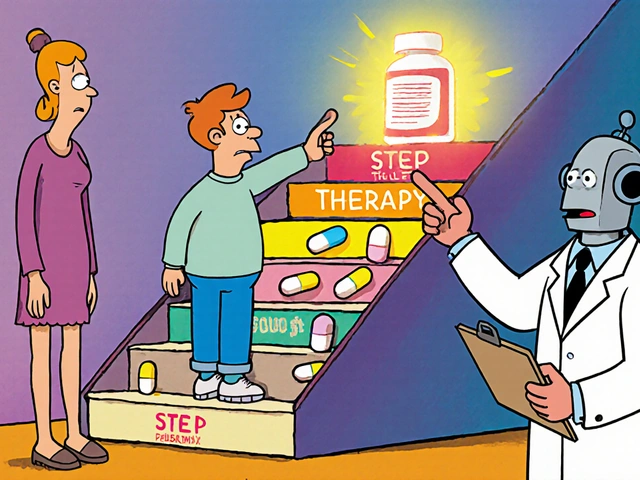Losartan-Hydrochlorothiazide (Hyzaar): What You Need to Know
If your doctor prescribed a pill that mixes losartan and hydrochlorothiazide, you probably want clear, usable facts. This combo pairs an ARB (losartan) with a thiazide diuretic (hydrochlorothiazide, often called HCTZ) to lower blood pressure more effectively than either drug alone.
How it works and common doses
Losartan relaxes blood vessels by blocking angiotensin II, which helps blood flow easier. HCTZ reduces extra salt and water by making your kidneys pass more urine. Together they cut blood pressure and lower strain on your heart. Typical fixed doses you might see are 50/12.5 mg or 100/25 mg (losartan/HCTZ). Your doctor picks the dose based on your blood pressure and other health factors.
What to watch for: side effects and interactions
Most people tolerate this combo, but watch for dizziness, especially when standing up fast—orthostatic hypotension is common at first. You may notice increased urination, lightheadedness, or thirst from the diuretic. Labs can change: HCTZ may raise blood sugar, cholesterol, and uric acid. Losartan can affect potassium, but when combined with HCTZ the risk of high potassium is lower—still, kidney function and electrolytes should be checked.
Some drug interactions matter: avoid regular NSAID overuse (ibuprofen, naproxen), as they can blunt blood-pressure control and stress the kidneys. Tell your prescriber if you take lithium, potassium supplements, salt substitutes (many contain potassium), or other blood pressure meds—those combinations can cause low blood pressure or abnormal potassium levels.
Never use this combination if you're pregnant or planning pregnancy. ARBs like losartan can cause serious harm to a fetus. If breastfeeding or pregnant, talk with your clinician right away about safer options.
Serious signs that need urgent care include fainting, very fast heartbeat, severe dizziness, difficulty breathing, or swelling of face and throat. Also call your doctor if you get muscle weakness, numbness, or a sudden drop in urine output—these can point to electrolyte or kidney problems.
Simple tips to get the best results: take the pill in the morning so increased urination doesn’t disturb sleep; stand up slowly to avoid dizziness; limit alcohol until you know how the drug affects you; and stay hydrated but avoid overdoing fluids if you have heart failure—check with your doctor first.
Monitoring matters: expect a follow-up blood pressure check and blood tests for kidney function, sodium, potassium, and sometimes glucose or lipids within a few weeks of starting or changing the dose. Bring a list of all medicines, supplements, and OTC drugs to every visit so interactions get caught early.
Want a deeper read? Our Hyzaar article covers dosing, side effects, and real-world tips for people on the losartan-HCTZ combo. If you have questions about switching drugs or side effects, talk to your prescriber or pharmacist—they can personalize the advice for you.



